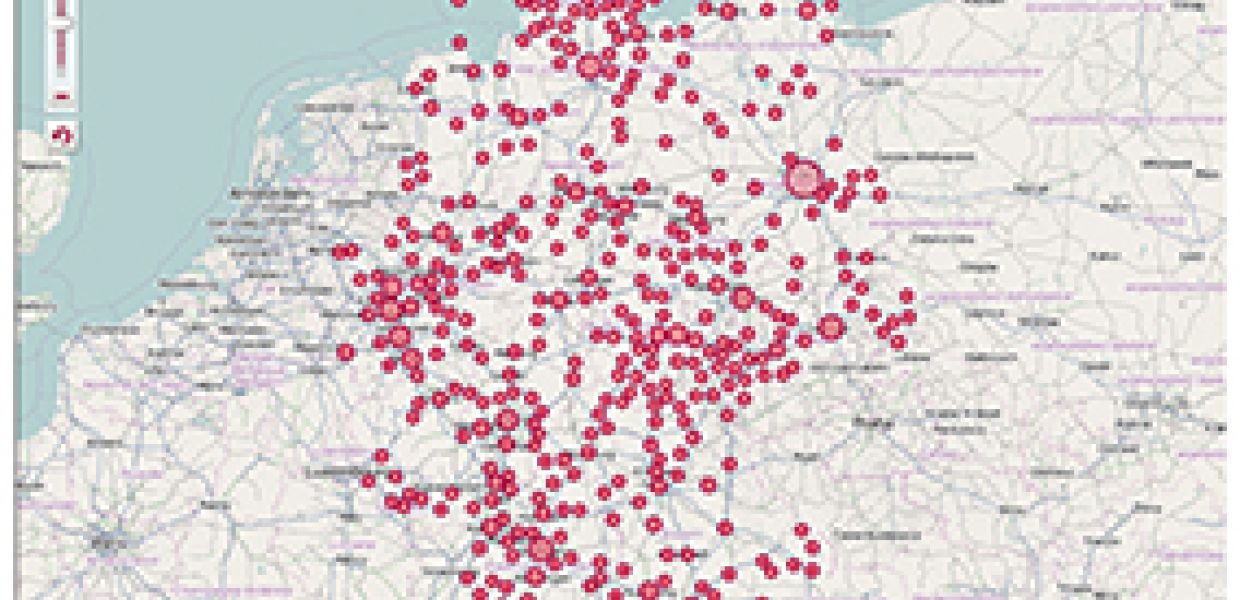Deutsche Digitale Bibliothek puts culture and knowledge online

Every month we present one of the Europeana partners to the wider Network. This month Astrid Müller from the Deutsche Digitale Bibliothek tells us about the history of the project, what they do and their plans for the future.
What it is?
The Deutsche Digitale Bibliothek (DDB) is dedicated to establishing free online access to Germany’s cultural and scientific heritage.
The portal, completely organised and funded by the public sector, has the ongoing aim of linking up the digitised inventories of Germany’s cultural and scientific institutions and making them available, free of charge, to the public. Millions of books, archived items, images, sculptures, pieces of music, sound documents and films, are being brought together and cross-referenced for unrestricted viewing on a central online portal. The DDB is also the national data aggregator for Europeana.
Beyond that, the DDB is a network of cultural and scientific institutions in Germany. It enables and encourages them to cooperate, to develop and use together services and innovative tools. A map showing a constantly increasing number of organisations and institutions (already more than 2,100 in June 2014) provides an unique overview of Germany’s cultural and scientific landscape.

What is offered in the DDB?
More than 100 institutions are currently offering unrestricted access via the Deutsche Digitale Bibliothek to almost 8 million records. The material includes digitised collections and indexing information from cultural and scientific institutions such as archives, libraries, museums, monuments offices, media libraries, universities and other research organisations.
Who we are
The Deutsche Digitale Bibliothek is a network of expertise: 13 cultural and academic institutions of all cultural domains, sponsored by the Federal German government, the German States governments and local authorities. These institutions manage and oversee the development and expansion of the Deutsche Digitale Bibliothek.
Our history in brief
The decision to set up the DDB was taken in 2009 by the Federal Cabinet and at the conference of regional First Ministers. Set up in 2010, the first beta version of the online portal was launched in 2012, allowing users to research and view digitised material already totalling several million items.
In 2013 the service centre and several domain-specific service desks were set up. They function as contact points and give advice and practical support for interested institutions, on how to get their material into the Deutsche Digitale Bibliothek – from the first enquiry through the process of data clearance to the final publishing of content on the platform.
In November 2013 the Deutsche Digitale Bibliothek introduced its API, going one step further towards providing online access to digitised cultural and scientific content and making it compatible with the Semantic Web.
In March 2014 we unveiled the first full version in Berlin. The public event was the largest event organised by the Deutsche Digitale Bibliothek on its own account so far. More than 300 of Germany’s culture and media professionals, policy-makers and representatives from scientific institutions met at the Gemäldegalerie (Gallery of Old Masters) to learn about the current state of development of the Deutsche Digitale Bibliothek. The launch was also a chance for project managers, supporters and associates of the DDB to exchange information and ideas.
What next?
Ongoing improvements to the individual DDB components, especially regarding the portal itself and the quality of data, are planned for 2014/2015. The next enhancements are likely to involve discovery functions, the cross-referencing of objects and semantic links, and further improvements to the search function. More virtual exhibitions, curated by content experts, will clearly show the richness and diversity of the material made available via the DDB.
What happens now?
Parallel to its work to expand the portal, the Deutsche Digitale Bibliothek is an active participant in the multifaceted discourse about digital access to cultural heritage. Further essential activities are issues relating to copyrights and licences, and e.g. the creation of frameworks for cultural memory in an age of digital and networked media – a focus of the newly established ‘Digital Culture Memory’ think tank.
The DDB is also involved in congresses, partnerships and events relating to digitised cultural and scientific heritage. One of the various initiatives is the first German culture hackathon, organised jointly by the Deutsche Digitale Bibliothek together with its partners. Under the slogan ‘Coding da Vinci’, for the first time in Germany, programmers, designers and gamers liaised with cultural institutions during a hackathon to develop digital applications based on cultural information.
Everyone is invited to attend the presentation of results and the public awards ceremony on 6 July in Berlin. For registration, visit: codingdavinci.de
